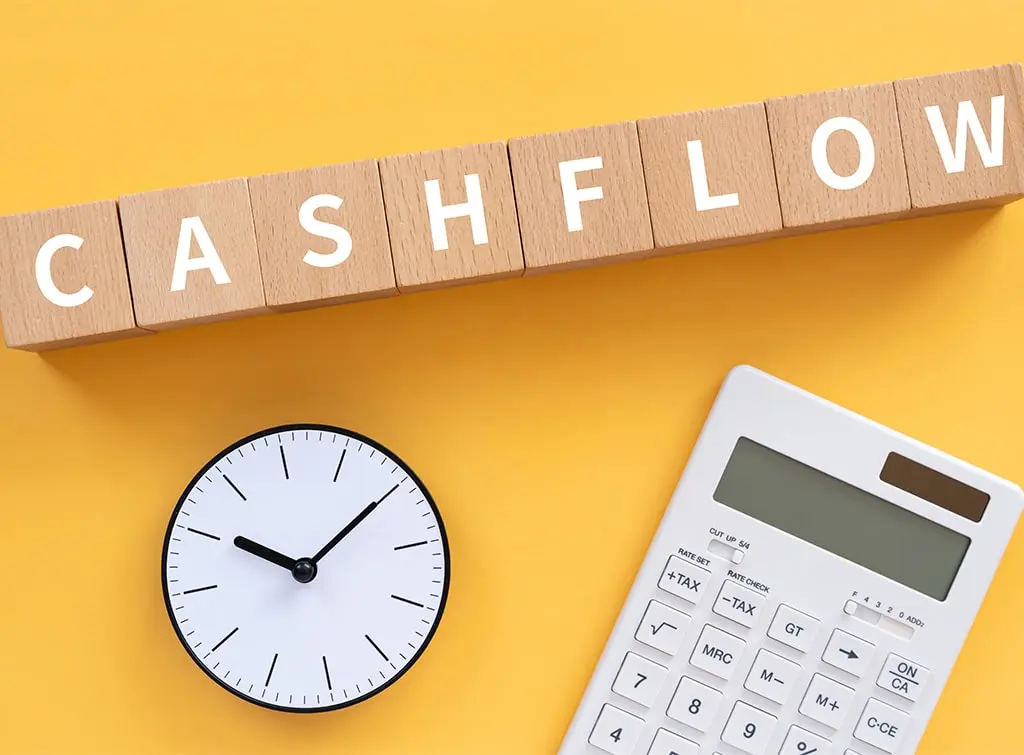Blog>Trade>Finance>Everything you need to know about invoice factoring for small business
Last updated: 24 November 2023
Everything you need to know about invoice factoring for small business
Invoice factoring for small business can be a great way for tradespeople to smooth their cash flow. This article looks at the cost of factoring invoices and typical factoring charges.

When you’re running a business, you need customers to pay you on time. For many trades, payment terms for customers are usually anywhere from 30 to 90 days.
That can be a long time to wait. Especially if you have to pay suppliers for goods and materials before you start a job.
There are many ways you can coax and cajole customers into coughing up in a timely fashion. Tradespeople can also opt to pay someone else to do the chasing for them.
It’s called invoice factoring.
What is invoice factoring?
With invoice factoring you ‘sell’ your sales invoices to another company. They then pay you most of the amount due to your business upfront. This is usually 80-90% of the total amount the customer owes you.
It’s down to the invoice factoring company to collect the full amount from your customers. Next, you’ll receive most of the rest of the amount owed to you. It won’t be the full amount, though. You have to pay invoice factoring charges for the service.
Businesses at all stages of their growth can benefit from using invoice factoring. This includes invoice factoring for start-ups. Invoice factoring can also be helpful for sole traders.
In the right circumstances, invoice factoring could be the answer businesses are looking for. In the small business sector, the popularity of invoice factoring could be down to the difficulty in obtaining funding from banks.
Invoice factoring v invoice financing
You may hear both terms and think they’re the same. But there are some crucial differences:
With invoice financing:
You still receive money upfront from an invoice financing company based on the value of your sales invoices
But you loan the money from the invoice factoring company and have to repay it all
You are responsible for chasing outstanding customer invoices
You pay interest on the amount you borrow
Your customer doesn't need to know you have this arrangement in place
Improve your business finances
We can help you win more business
How invoice factoring works
These are the main steps in the process:
Invoice your customers in the usual way
Send the invoice to the factoring company
You receive most of the amount owed to you immediately from the invoice factoring company
Customers make payments directly to the invoice factoring company
You receive the balance of the amount due to you (minus the invoice factoring charge)
If you choose invoice factoring, then you’ll probably need to make some changes to your invoices. You may need to add information as well as all the usual things that should go on an invoice.

These could include:
Replacing your bank payment details with those of the invoice factoring company
Changing your terms and conditions for paying the sales invoice
Cost of factoring invoices
Invoice factoring charges vary for a number of reasons. You’ll need to consider the type of business you run to get an idea of what invoice factoring rates might be.
The following can affect the cost of invoice factoring:
Higher-value invoices usually mean lower invoice factoring charges
The more sales invoices you issue each month can reduce the charges
Late-paying customers could increase the invoice factoring rates
The creditworthiness of your industry sector could make the invoice factoring costs higher
The creditworthiness of your customers can also have an impact on invoice factoring rates
Your financial track record also has a bearing on how much you could pay in invoice factoring charges
Typically, the cost of invoice factoring is 1.5% to 2.0% of the invoice amount. This could go to 5.0% or higher.
Also, invoice factoring companies might make additional charges over and above their core rates. You need to keep a close eye on what the total cost might be to use the service.
Improve your business finances
We can help you win more business
Advantages and disadvantages of factoring
Invoice factoring isn’t for everyone. Invoice factoring costs aren’t the only downside. It’s always best to do your homework carefully on the invoice factoring provider.
Make sure you are comfortable with the proposed arrangement – especially the invoice factoring company’s terms and conditions.

Here’s a round-up of the advantages and disadvantages of factoring:
Pros of invoice factoring
Usually easier and quicker to obtain invoice factoring than getting a bank loan
Improves your cash flow by receiving money owed to you quicker
A healthier cash flow can help you get other forms of credit
Gives you access to money to grow your business and increase sales
Helps you to control your finances better
Allows you to give your customers a bit longer to pay what they owe
Reduces the risk of bad debts from non-paying customers
Takes away the hassle of chasing customers for payment
Frees you to concentrate on running your business
Cons of invoice factoring
If you only have a small number of customers then it might be expensive to use
You don’t receive the full amount (minus charges) upfront so if your customers always pay promptly then it might not be worth doing
You make less profit on jobs as you have to pay invoice factoring charges
Invoice factoring rates can be high
You don’t own the customer debt so you can’t chase them for late payment. You could be paying higher charges the longer customers take to pay the invoice factoring company
You may not be able to use invoice factoring for customers who are bad at paying on time
The invoice factoring contract could be for a longer period than you want and difficult to end without incurring further charges
You’ll have to repay any outstanding amounts if you choose to stop the service
Invoice factoring can have a poor reputation if companies exploit tradespeople with confusing and hidden charges
What you need to obtain invoice factoring
The main requirements needed by invoice factoring companies include:
A business bank account
Business details like your turnover and profit
VAT details (if you are registered for VAT)
Tax details
Your business has to be generating sales invoices
Your customers usually need to have a good credit history

Other customer payment options to consider
If the cost of invoice factoring puts you off the idea, then there are other ways of getting paid on time. One of these is to agree a payment schedule with customers.
You’d usually do this on a customer-by-customer basis. A payment schedule can improve your cash flow.
Going cashless is another way of ensuring prompt customer payments. By taking card payments using a hand-held card reader, the money goes straight into your bank account.
You’ll also know immediately if the payment has failed. So, it can help reduce the risk of unpaid customer debts.
The Department for Business & Skills has useful information to help tradespeople get on top of customer payments.
Key takeaways
Invoice factoring can boost cash flow for a small business
It works by ‘selling’ your sales invoices to an invoice factoring company that then collects the money due and pays you most of the amount, after taking its charges
Invoice factoring can be quicker and easier to obtain than a bank loan
The cost of invoice factoring can be high and it might not be appropriate for your trade business
Invoice factoring charges will depend on various considerations, including your business history, your trade and your customers’ credit history
You’ll need to provide solid business credentials to set up invoice factoring
Ready to take your business to the next level?
We can help you get there
DISCLAIMER
This is information – not financial advice or recommendation. The content and materials featured or linked to on this blog are for your information and education only and are not intended to address your particular personal requirements. The information does not constitute financial advice or recommendation and should not be considered as such. Checkatrade website is not regulated by the Financial Conduct Authority (FCA), its authors are not financial advisors, and it is therefore not authorised to offer financial advice.
Always do your own research and seek independent financial advice when required. Any arrangement made between you and any third party named or linked to from the site is at your sole risk and responsibility. Checkatrade blog and its associated writers assume no liability for your actions.


